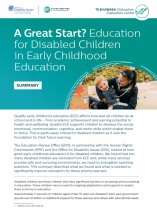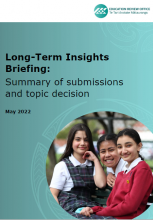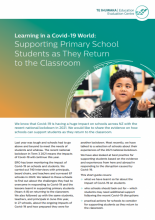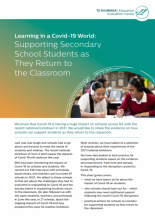A Great Start? Education for Disabled Children in Early Childhood Education - summary
Quality early childhood education (ECE) affects how well all children do at school and in life – from academic achievement and earning potential to health and wellbeing. Quality ECE supports children to develop the social, emotional, communication, cognitive, and motor skills which enable them to thrive. This is particularly critical for disabled children as it sets the foundation for their future learning.
















